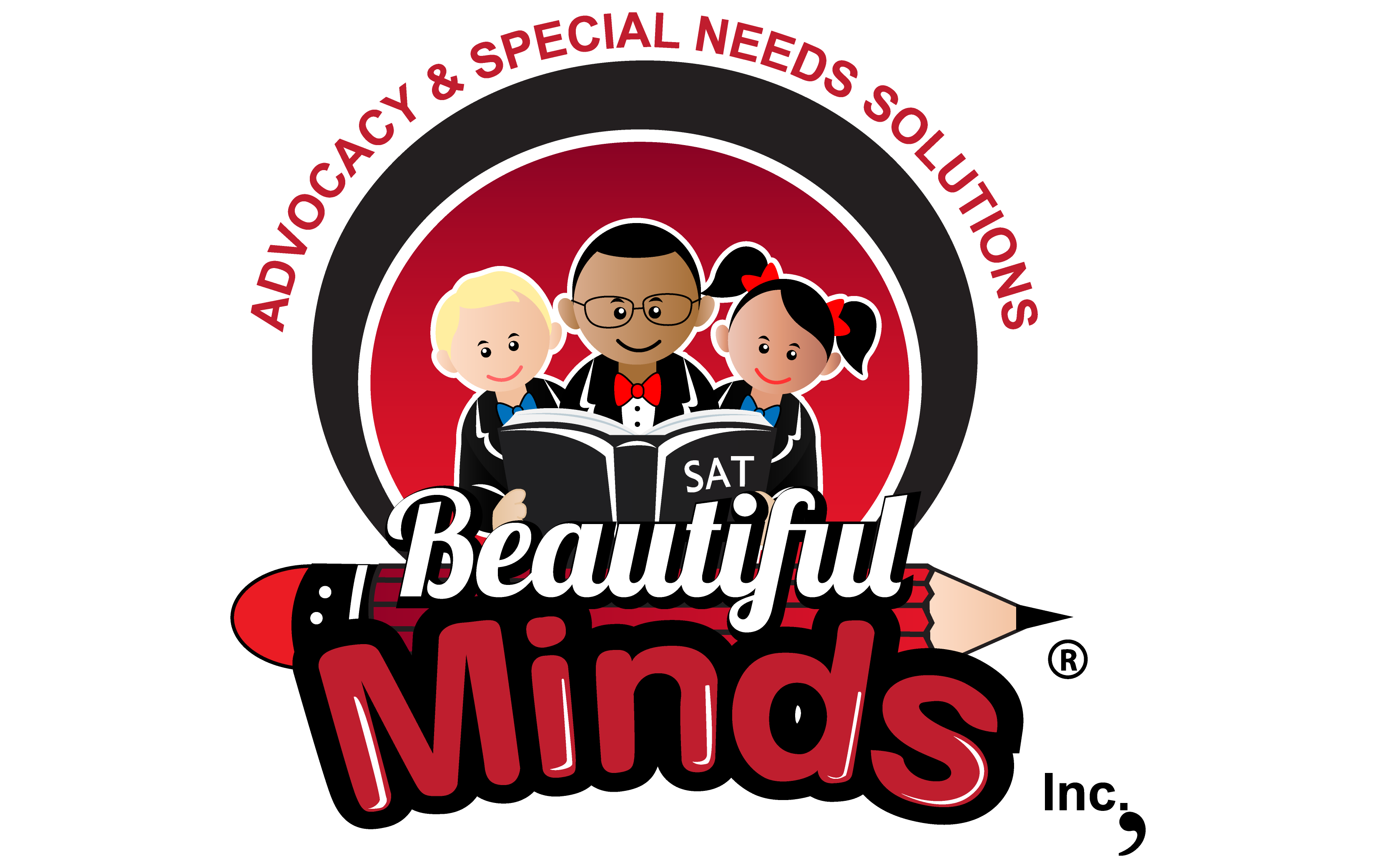
Behavior Problems and Learning Disabilities
One of the hallmark features of learning disabilities (LD) is inconsistent performance. Research studies with children, adolescents and adults with LD frequently point to sometimes erratic and often confusing profiles of individuals who seem to be able to do some things quite well while struggling dramatically to perform other tasks. This mismatch between ability, expectations and outcomes can cause terrific disappointment and upset, resulting in a cascade of emotions and behaviors that can interfere with everyday functioning in school, at home and in the community.
Dr. Ifeanyi A. Ufondu, Beautiful Minds Inc.- Advocacy and Special Needs Solutions owner and Howard University alumnus has referred to this mismatch as“Islands of weakness in an ocean of strength.” And it’s not hard to see why.
For example:
Some individuals with LD can remember the most obscure visual details and recall long and involved lyrics to songs but have trouble retrieving specific vocabulary words for conversation, comprehending spoken or written narrative, or writing grammatically correct narrative.
Young children with LD might be able to draw well but struggle with handwriting.
Some might demonstrate extraordinary ability running and jumping but struggle with bouncing a ball or mastering the swing of a tennis racquet with precision.
For some, reading is slow and labored but doing math seems almost natural (or vice versa).
Very often, individuals with LD understand a topic well enough to answer questions and engage in discussion when information is first presented, but do miserably on an exam or in a discussion on the same topic later that week.
Frustrations on the Rise
These inconsistencies and learning challenges can be frustrating to teachers and parents, but the toll they take on children is often devastating to their self-esteem. I wish I had a nickel for every time a child told me that they felt “broken” or were called “stupid” by peers (and even adults!). The emotional battering they experience when they don’t meet their own expectation for success often results in feelings of isolation and a loss of interest in learning. Stomach aches, headaches, episodes of anxiety (feeling nervous, feverish, dizzy or out of breath) are all frequently reported symptoms of children who feel out of control and who are not able to plan and execute strategies for achieving success in school.
For many, their repeated lack of success despite the efforts of well-meaning teachers and parents (and hard work on their part) results in a condition called “learned helplessness.” After repeated disappointments and without any relief in sight, these children will assume a passive role and in effect stop believing that there is anything they can do to improve their situation. These children will often say that their successes are the result of luck rather than intelligence and hard work, and that there is nothing they can do to achieve better grades, be better liked by peers, or be understood and appreciated by teachers and other influential adults in the school community.
And then There’s Puberty!
Uh-oh! Here comes adolescence!
As students enter the middle school years, they are particularly vulnerable to behavioral challenges triggered by their struggle to learn. Some students will cut classes rather than have to face a teacher (and fellow students) whom they perceive as not being invested in their success and whose expectations they are clearly not able to meet.
The school drop-out rate for students with LD is many times higher than that of non-disabled peers, and without an all-hands-on-deck approach to keeping students with LD engaged in successful high-quality academic programming AND non-stressful social activities with peers, the likelihood of truancy and school drop-out is greatly increased.
Warning Signs
Poor grades, somatic (physical) complaints and school absences are clear warning signs (and calls for help) for students with LD. Unfortunately, these students will often resort to getting into trouble, resulting in their being removed from class or even suspended from school. This shifts the focus of attention away from their struggle with academic learning and instead points to some social or behavioral reason for their being singled out.
Students with LD will often complain about school, and in many instances these complaints can be red flags for behavior problems to come. Some examples of these kinds of comments are:
Laying blame on the teacher: “The teacher is unfair and picks on me, so I’m not going to do any of her assignments,” or “It’s the teacher’s fault that I didn’t do well on the test because she didn’t remind me it was today, and I guessed at most of the items.”
Making excuses for bad behavior to hide their insecurities about struggling to learn: “The hallway was too crowded, and when I got to the cafeteria there was no dessert left, so I trashed my tray and got sent to the office instead of going to my next class which, by the way, is the one where I don’t learn anything anyway.”
Exhibiting an “I give up” attitude: “School is just boring, the work is dumb, the assignments are too hard (or too easy), and the teacher never checks homework anyway, except when she knows I don’t have it done.”
Pulling away, or refusing to communicate to avoid confrontation: “What happened in school today?” “I don’t want to talk about it.”
Other Risk Factors
There are many factors to consider when trying to understand whether LD issues are contributing to or triggering maladaptive behavior. Parental expectations and communication between home and school personnel can be very important as personal stressors within families can have a significant impact on behavior in school. Also important is whether the child has (or is at risk for) other disorders such as ADD/ADHD or medical or psychiatric conditions that could impact learning, behavior and attention. And let’s not forget the critically important realm of social-emotional development. Individuals with LD often experience considerable frustration in this area, not knowing how to ask for help, being awkward in joining in with peers, misreading social cues, not knowing how to stand up to teasing or when it is appropriate to engage in flirtatious behavior, and being unsure about how to deal appropriately with group pressure.
BEVERLY HILLS, CA 90211
Phone: 310-590-5898
E-Mail: INFO@BEAUTIFULMINDSINC.COM
Web: BEAUTIFULMINDSINC.COM
All Rights Reserved- Beautiful Minds Inc.2019
